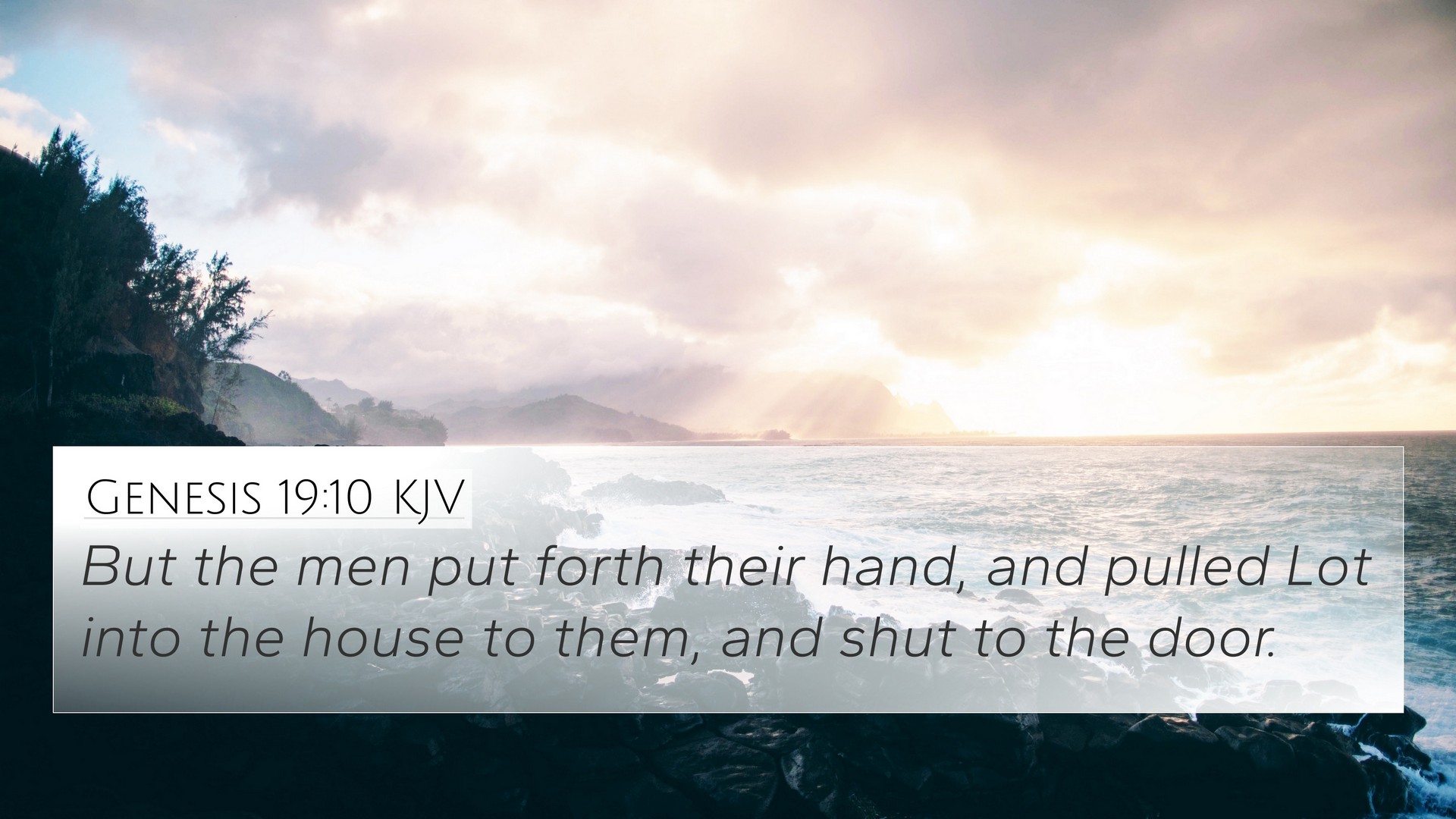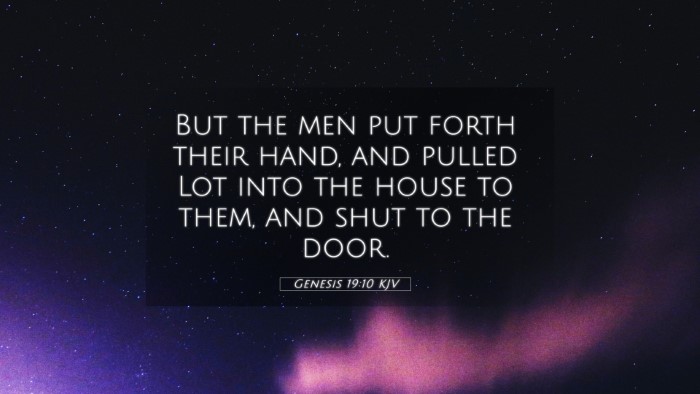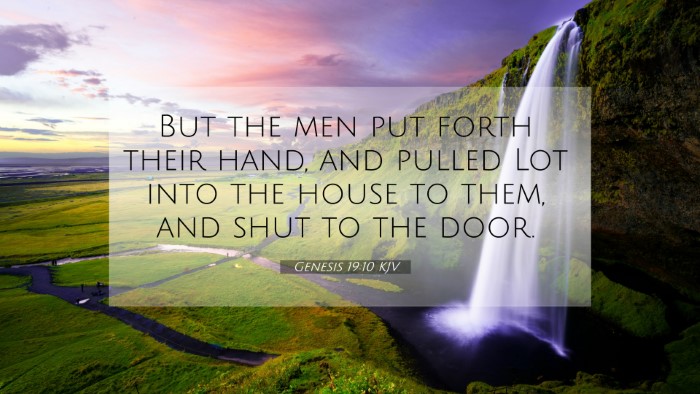Understanding Genesis 19:10
This verse from Genesis provides a glimpse into the moral and social decay in the city of Sodom, ultimately leading to its destruction. Let's explore the insights from various public domain commentaries, focusing on the implications of this passage.
Verse Context
Genesis 19:10 states: "But the men put forth their hand, and pulled Lot into the house to them, and shut to the door." This moment occurs during the visitation of the two angels to Lot in Sodom, illustrating both human depravity and divine intervention.
Commentary Insights
Matthew Henry's Commentary
Matthew Henry emphasizes the urgent need for divine protection in a morally corrupt environment. He notes that the actions of the men of Sodom reflect the unchecked wickedness prevalent in the city. Henry suggests that Lot's hospitality was met with hostility, further illustrating the degree of depravity that had taken root in Sodom.
Albert Barnes' Notes
Barnes interprets this passage as a profound moment of rescue and contrast. The angels, sent by God, intervene at a critical moment, showcasing God’s mercy amidst impending judgment. He highlights that Lot's experience serves as a stark reminder of the consequences of living in a corrupt society.
Adam Clarke's Commentary
Clarke points to the symbolic significance of the event, suggesting that the act of pulling Lot into the house represents God's protection of the righteous amidst the wicked. He emphasizes God’s authority over evil and the importance of recognizing divine intervention during perilous times.
Key Themes and Reflections
- Divine Protection: Lot's rescue signifies God's watchful care over those who are faithful even in adverse circumstances.
- Cultural Decay: The verse serves as a commentary on the moral decline that can permeate a society when left unchecked.
- Hospitality vs. Hostility: The juxtaposition of Lot’s hospitality against the violent demands of the Sodomites highlights the theme of virtue versus vice.
- Judgment and Mercy: The intervention of God through the angels signifies both the impending judgment on Sodom and the mercy extended to Lot and his family.
Bible Cross-References
Genesis 19:10 connects to several other passages in the Bible that explore similar themes of divine mercy, judgment, and the nature of human sin:
- Genesis 18:20-21: God reveals His intent to judge Sodom due to its wickedness.
- Jeremiah 23:14: Reflects on the prophets in Jerusalem who have led the people to sin as Sodom did.
- Romans 1:26-27: New Testament reflections on moral depravity agreeing with the essence of Sodom's sins.
- Luke 17:28-30: Jesus refers back to Sodom as an example during the time of His second coming.
- 2 Peter 2:6: Discusses Sodom and Gomorrah as a warning against ungodliness.
- Jude 1:7: Mentions the sins of Sodom as an example of the punishment awaiting the ungodly.
- Matthew 10:15: Jesus declares that it will be more bearable for Sodom and Gomorrah on the day of judgment than for towns that reject His disciples.
Thematic Connections
This encounter in Genesis 19 is not only an isolated event, but it also creates a dialogue across the Scriptures. The themes introduced in this passage have explicit connections with various other Biblical texts, enhancing our understanding of God's dealings with humanity:
- Moral Decline: Across the Bible, the deterioration of moral values leads to divine judgment as seen in Sodom.
- Righteous vs. Wicked: The contrasting fates of the righteous and the wicked are echoed in Proverbs 11:31.
- Hospitality: The importance of hospitality is a recurring theme from Genesis (Abraham's example) through the New Testament (Hebrews 13:2).
Conclusion
Genesis 19:10 serves as a powerful reminder of human depravity and divine grace. By examining its context, commentary insights, and inter-Biblical connections, we gain a deeper appreciation for the text’s messages about morality, judgment, and the protective hand of God. Exploring these connections not only enriches our study but also enhances our understanding of God's overarching narrative throughout the Scriptures.


